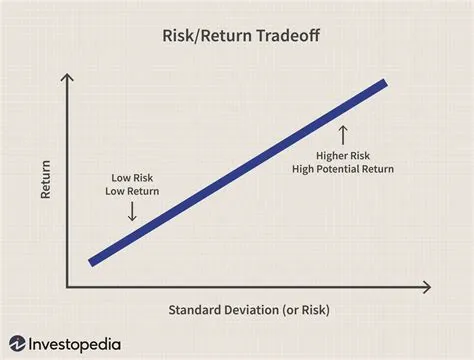Hey there! Ever feel like your brain needs a workout, just like your body? We all hit those moments of stress, anxiety, or just plain overwhelm. And that’s where mental fitness apps step in – your personal pocket-sized gurus for a calmer, more focused you. But before we dive into the amazing world of these apps, let’s be real: finding the right one can feel like searching for a needle in a digital haystack. So grab your favorite beverage, settle in, and let’s navigate this together.
The Rise of the Mental Fitness App: More Than Just a Trend
Remember those clunky home exercise machines that promised miracle transformations? Mental fitness apps aren’t like that. They’re not about quick fixes or overnight transformations. Think of them more like personal trainers for your mind, offering a structured approach to building mental resilience and well-being. They’re a growing trend for a reason: they offer accessibility, personalization, and a supportive community, all wrapped into a convenient package.
We’re living in a fast-paced world, and our brains are constantly bombarded with information. It’s no wonder many of us struggle with stress, anxiety, and difficulty focusing. These apps provide tools and techniques to help you manage these challenges, enhancing your overall mental health. They’re not magic bullets, but they can be invaluable tools in your mental health toolkit. Isn’t that empowering?
What Can Mental Fitness Apps Do For You? A Peek Inside the Toolbox
The range of features offered by these apps is astounding. Some focus on mindfulness and meditation, guiding you through calming exercises to reduce stress and improve focus. Others offer cognitive trends">behavioral therapy (CBT) techniques, helping you identify and challenge negative thought patterns. Still others provide personalized journaling prompts, helping you process emotions and track your progress.
Imagine having a therapist in your pocket, available 24/7. While these apps aren’t a replacement for professional help, they can be incredibly beneficial for managing everyday stress and building healthy coping mechanisms. They can teach you practical skills, from deep breathing exercises to effective strategies for managing anxiety in social situations. It’s like having a personal guide on your mental health journey.
Many apps offer features like sleep trackers and mood trackers, helping you gain insights into your mental well-being patterns. This data can be incredibly useful for identifying triggers and making positive changes. It’s like having a personal data analyst for your mental health.
Finding the Right App: It’s a Personal Journey
With so many apps available, choosing the right one can feel overwhelming. What works for one person might not work for another. Consider your specific needs and preferences. Are you looking for guided meditations? CBT techniques? A community aspect? Reading reviews and trying out free trials can help you find the perfect fit. It’s a bit like trying on different shoes until you find the pair that fits perfectly.
Don’t be afraid to experiment! The app that’s perfect for your friend might not be the one for you. What matters most is finding an app that resonates with you and helps you achieve your mental wellness goals. Remember, consistency is key. Just like with physical exercise, the benefits of mental fitness apps are most apparent with regular use.
Addressing Concerns: Are Mental Fitness Apps Safe and Effective?
A common question is whether these apps are truly effective. While research is ongoing, numerous studies suggest that mindfulness and CBT-based apps can be beneficial for managing stress, anxiety, and depression. However, it’s crucial to remember that these apps are not a replacement for professional mental health care. They’re a valuable supplement, a supportive tool to enhance your existing strategies, not a cure-all.
Regarding safety, reputable apps typically adhere to data privacy standards. Always check the app’s privacy policy before downloading it. And remember, if you’re struggling with severe mental health issues, seeking help from a qualified professional is crucial. These apps are designed to complement professional care, not replace it. They’re like having a helpful assistant alongside your main healthcare team.
Beyond the App: Building a Holistic Approach to Mental Fitness
Mental fitness apps are powerful tools, but they’re most effective when combined with other healthy habits. Think of it like this: the app is your training plan, but you also need to fuel your body properly (healthy diet) and get sufficient rest. A holistic approach to mental well-being includes:
- Regular exercise: Physical activity releases endorphins, which have mood-boosting effects.
- Sufficient sleep: Aim for 7-9 hours of quality sleep each night.
- Healthy diet: Nourishing your body with healthy foods supports brain function.
- Social connection: Strong social connections are vital for mental well-being.
- Mindful moments: Incorporate mindfulness into your daily routine, even if it’s just for a few minutes.
Using a mental fitness app alongside these healthy habits creates a powerful synergy, maximizing your potential for improved mental wellness. It’s like adding all the right ingredients to a delicious recipe.
The Future of Mental Fitness Apps: A Bright Outlook
The field of mental health technology is constantly evolving. We can expect to see even more innovative and personalized apps in the future. Imagine apps that use AI to tailor interventions to your specific needs, or apps that integrate with wearable technology to provide real-time feedback on your mental state. The possibilities are truly exciting. The future of mental health care is likely to be more personalized, accessible, and integrated than ever before.
The bottom line? Mental fitness apps are powerful tools that can significantly improve your mental well-being. They offer convenience, personalization, and a supportive community. While they aren’t a replacement for professional help, they can be an invaluable addition to your self-care routine. So, download an app, experiment, find your perfect fit, and embark on your journey towards a healthier, happier you.
Conclusion
In a world that often feels overwhelming, mental fitness apps provide a beacon of hope and support. They’re a practical, accessible way to invest in your mental health, offering a range of tools and techniques to build resilience and cope with everyday challenges. Remember, the journey to better mental wellness is a marathon, not a sprint, and these apps can be your trusted companions along the way. So, take that first step – your mind will thank you for it!
FAQs
1. Are mental fitness apps safe for people with pre-existing mental health conditions? While many apps can be beneficial, it’s crucial to consult with a mental health professional before using them if you have a pre-existing condition. They can help you determine if a particular app is suitable for your needs and ensure it complements your existing treatment plan.
2. How much do mental fitness apps typically cost? Prices vary widely, from free apps with limited features to subscription-based apps with more extensive content and functionalities. Many offer free trials, allowing you to explore before committing to a paid subscription.
3. What if I don’t see results immediately? Mental fitness is a journey, not a race. Consistency is key. Give the app time to work, and remember that the benefits might not be immediately apparent. If after consistent use you aren’t seeing improvement, consider trying a different app or consulting a professional.
4. Do these apps share my personal data? Reputable apps typically have privacy policies that outline how your data is collected and used. Always review these policies before downloading an app to ensure your comfort level with their data handling practices.
5. Can mental fitness apps replace therapy or medication? Absolutely not. These apps are designed to complement professional mental health care, not replace it. If you’re struggling with severe mental health issues, seeking help from a qualified professional is essential.

